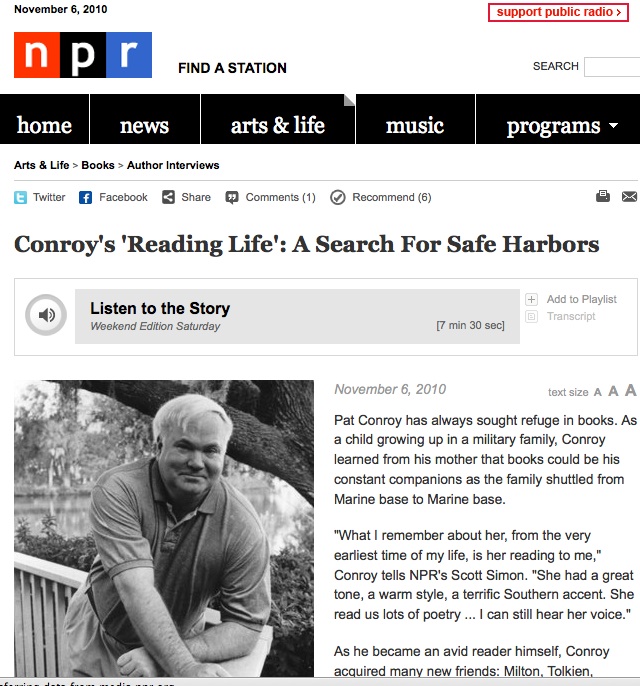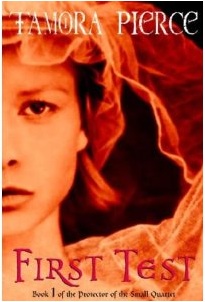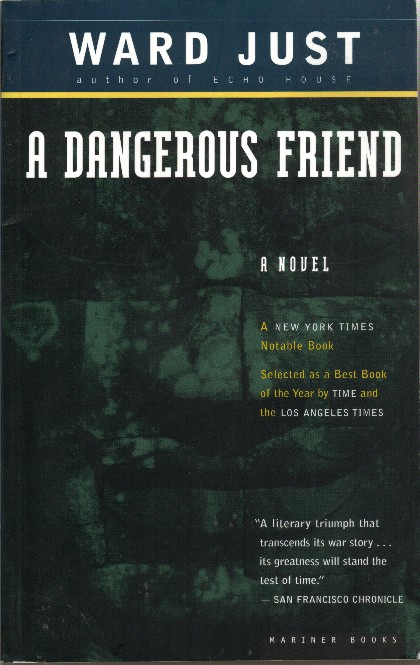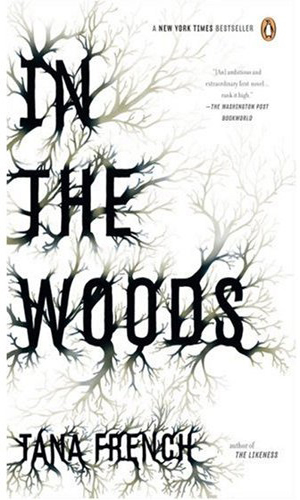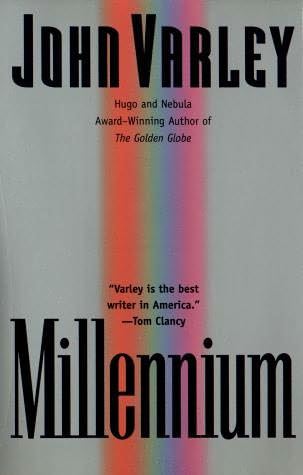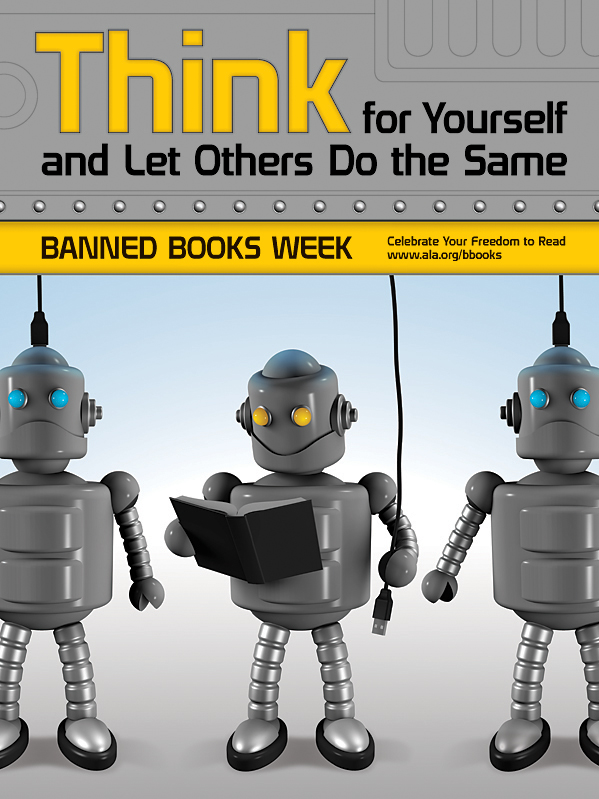It takes about five minutes to read through this book. I wish I could have laughed longer, but I couldn't have laughed harder.
A great gag gift or stocking stuffer. Click here to buy it on Amazon.
# Permanent link to The Dinosaur’s Lament
Who, let's face it, had to put up with an awful lot from Zeus.
I don't know what I was looking for when I stumbled across mention of the Hera series, but I googled it and wound up on this page on Library Thing.
One of the books on the list was Cecelia Holland's Great Maria, a book set in southern Italy in the 1100's. Maria is the daughter of a robber baron who is married off to the strongest and most ambitious of her father's knights, and the next fifteen years are adventurous indeed. I read this novel when it first came out in 1974, and I remember how struck I was by Maria's strength, determination and independence, all conveyed without any sense of anachronism. Maria is a heroine, but she is definitely of her own time and place. And she sure isn't someone anybody, including her husband, wants to cross.
I decided it was time to read it again, and went to Amazon, where, lo and behold, I noticed that Soho Press had published a series called "the Hera Series." The other books are also historical novels about women written by women, like Gillian Bradshaw's Beacon at Alexandria, about Charis who escapes an unwelcome marriage to Roman emperor Festinus to disguise herself as a eunuch and study medicine in Egypt, and Nancy Zaroulis' Call the Darkness Light, about a minister's daughter in 19th century New England.
Since discovering the existence of the Hera series, I have reread Great Maria and it's even better than I remember it. I think I'll give the other titles a try.
# Permanent link to In Homage to Hera
Interview with author Pat Conroy on NPR, about his new book, My Reading Life.
As a child growing up in a military family, Conroy learned from his mother that books could be his constant companions as the family shuttled from Marine base to Marine base.
"What I remember about her, from the very earliest time of my life, is her reading to me," Conroy tells NPR's Scott Simon. "She had a great tone, a warm style, a terrific Southern accent. She read us lots of poetry ... I can still hear her voice." She read him Gone With the Wind, and gave all the roles to family members--Melanie Wilkes was an aunt, Frank Kennedy was an uncle.
Reading was a refuge for him, both emotionally and physically. Conroy's father wouldn't hit him when he was reading; he thought his son was studying and approved of it. "It was the one place you could go to get away from his fists," says Conroy. "And it worked every time."
# Permanent link to “Conroy’s father wouldn’t hit him when he was reading…”
Christopher Kimball, whom I know well from my subscription to Cook's Illustrated, finds an old cookbook in an older house and spends two years translating and testing recipes to put on a Victorian spread for twelve (using a coal stove, no less, which I find by far and away the most horrific part of the process). Along the way, Fannie's Last Supper treats us to a history of Boston by way of fresh oysters and calf's foot jelly, in Fannie Farmer's kitchen.
I love The Fannie Farmer Cookbook, it is my go-to cookbook whenever I pull something unidentifiable out of the freezer and need a recipe to put it in. I am seldom skunked by one of the recipes therein. So I was amazed to discover that Fannie was more of a marketer than a cook, but if she inspired my favorite cookbook, so what?
I would have preferred more about the preparation of the food and less of the history of Boston markets in this book, but there are wonderful observations and nuggets about Victorian dining habits that make the book well worthwhile:
"Victorians were also less apt to invite friends over for dinner. Dining in someone else's home was an intensely personal event, and an invitation was the "highest form of social compliment.""
and
"The essence of table etiquette in Victorian times derived from the disturbing relationship between eating and animal behavior. One manual said, "Eating is so entirely a sensual, animal gratification, that unless it is conducted with much delicacy, it becomes unpleasant to others." These dinner parties were, in effect, a test of one's control over bodily appetites."
I'll never make a Victorian, I like to eat too much, but reading the book I was immediately inspired to create an Alaskan-style Victorian menu. I'd make the punch directly from Kimball's recipe for Victoria Punch, it sounds fabulous, and he and his co-conspirators certainly made and sampled their share. I can get oysters right across the bay. If I could wrangle some moose bones from friends I could make a clear moose broth. The fish course could be either salmon or halibut, whatever is fresh out of the Kachemak at the time. Venison from Kodiak, I have a source. Poultry, hmmm, maybe duck? Or, hey, maybe ptarmigan, my dad used to serve a fabulous pan-fried, oven-finished, wine-soaked ptarmigan breasts dish.
Vegetable, a potato gallette, from Yukon Golds grown in Alaska, but of course! Raspberry sorbet, from Alaskan raspberries. Burned butter frosting cake, not particularly Alaskan, but one of my favorites, and I know I can make it successfully. The cheeses will have to be from Costco. Only one liqueur, my grandmother's framboise.
Serving twelve? Maybe eight. In two hours? Even Kimball could only manage four and a half. Still sounds like a lot of work, but as Kimball rightly says, "...cooking, it seems to me, offers the most direct way back into the very heart of the good life. It is useful, it is necessary, it is social, and it offers immediate pleasure and satisfaction."
They did a PBS special on it, too, I can't wait for it to be on DVD. The one thing lacking in this book is photographs.
# Permanent link to “These dinner parties were, in effect, a test of one’s control over bodily appetites.”
Historical novels are hot right now, and no wonder, with novels like C.J. Sansom's Matthew Shardlake mystery series on offer. I, gulp, actually got the most recent one, Heartstone, in the signed British edition from the Poisoned Pen so I wouldn't have to wait a year for it to come out on this side of the ocean. It wasn't cheap. But it was worth it.
The series opens in London in 1537, where Matthew is an attorney. He has a hunchback, which renders him odious and unlucky to his fellow men, as well as ineligible to all of the beautiful women with whom he falls in love. He is honest and able and intelligent, but his strongest -- and his enemies would say, his most unfortunate -- trait is his dogged determination to get to the truth of every wrong-doing brought to his attention, and to see it set right, no matter how many of the nobility it pisses off. And it pisses off many of them, indeed, all the way up to King Henry VIII, he of many wives.
Some of the wives have at least walk-on parts in these novels, but what is even more interesting is the effect that Henry's, ah, acquisition and subsequent relinquishment of so many wives had on the English government and the people, which Sansom renders in uncomfortable and sometimes excruciating detail. The greed of the "new men" to grab everything they can get from every new order smells just as bad as the ordure in the street. The period detail makes these seriously enjoyable you-are-there books.
In the first novel, Dissolution, one of Cromwell's commissioners has been murdered in the commission of the dissolution of the Monastery of St. Donatus, and Matthew journeys to Scarnsea to investigate. There he meets Guy, a soon-to-be ex-monk who moves to London and becomes Matthew's private medical examiner in future novels.
In Dark Fire, Cromwell sets Matthew to track down the formula for Greek fire so King Henry may lay waste to the French, with whom he is perennially and disastrously at war. Jack Barak makes his debut, first as Cromwell's man and then as Matthew's clerk.
In Sovereign, Henry goes on progress to York with fifth wife, Catharine Howard, there to put down thoughts of rebellion in his uppity northern subjects, all of whom live far too near the Scots for his taste. Matthew, drawn yet again against his will (so he says) into political intrigue, this time by Archbishop Cranmer, investigates the case of a papist conspirator, which takes him into the barbaric north in Henry's train.
By Revelation, Henry's on his sixth wife, Catherine Parr, and Matthew, Guy and Jack are on the trail of what may be a serial killer. The case takes them into the Bedlam, a hospital for the insane where everything is for sale that makes today's asylums look a lot better by comparison.
In the fifth and most recent novel in the series, Heartstone, Queen Catherine hires Matthew to look into alleged wrongs against a young ward in the care of one of Henry's "new men," and he uses the opportunity to look into the history of a woman he met in the Bedlam in the previous novel. The Lady Elizabeth has a scene and a brief but fascinating literary discussion with Matthew over a recently published book on archery that not only sets up a relationship for future novels (I hope, I hope), but is also key to the solution of the mystery. The climax is a truly harrowing scene on board none other than the Mary Rose. (The British edition, so you know, is a beautifully produced book, with end maps in color, black-and-white maps beginning each part, and even a red ribbon bookmark sewn into the spine.)
Sansom includes an historical note at the end of each novel with additional details of the place and time and the people who lived then, which adds to the general feeling of traveling through time. The only complaint I have is that people are always saying something or smiling "sadly." And I can live with that.
# Permanent link to Matthew Shardlake, attorney, hunchback, seeker after truth
My agent told me that 75 percent of the book deals made at the Frankfurt Book Fair this year were for young adult novels. About time. I have been saying for years that some of the best storytelling nowadays is to be found in young adult novels -- the Harry Potter books, Suzanne Collins' Mockingjay trilogy, Laurie Halse Anderson's Speak, even Sharon Lee & Steve Miller's two latest Liaden novels, Fledgling and Saltation feature a YA heroine. These characters are not your mother's heroines, they aren't Anne Shirley or Laura Ingalls. Don't get me wrong, I love those books, too, but today's YA heroes (using the gender non-specific deliberately here) have a lot more options than teaching school and marriage.
I just finished Tamora Pierce's Protector of the Small Quartet, and how I wish there were a fifth. Set in Pierce's Tortall world, ten-year old Keladry of Mindelan wants to be a knight. Problem: She's a girl, and it's been a hundred years since there were lady knights in Tortall, with the sole exception of Alanna the Lioness, who has her own books. After a throw-down with a spidren (a big scary immortal spider that eats people), Kel says, "I want to protect people. And I will. I will. I'll be a hero one day, just like Mama. Just like the Lioness. Nobody will kill two kittens in front of me then."
So, in the face of parental dismay, sibling ridicule, the training master's adamant disapproval, hostility from her fellow pages, and opposition from conservative nobles, Kel enrolls in knight school. First Test takes her through a probationary year, Page through the rest of her years as a page, Squire through her four years as a squire, and Lady Knight on her first assignment after she wins her shield. It turns out every man's hand is not against her, after all, that she has friends among her year mates and even in the nobility, that hard work and ability are noticed and rewarded. No allowances are made for her gender, and none have to be. The action scenes are vividly drawn (the "flying lessons" from Lord Raoul in particular make you feel every bruise), and the characters (Lord Wyldon, Lord Raoul, Piers and Ilane, the Yamani, Neal, I could go on) make you glad you get four whole novels for your visit with them.
But it is proud, stubborn, loving, eminently capable and infinitely talented Keladry of Mindelan who will keep you coming back for more. A wonderful read, and, FYI, a great Christmas gift for the young adult readers in your family. There really ought to be a boxed set.
# Permanent link to “Nobody will kill two kittens in front of me then.”
[a reprint of Nancy Pearl's piece on March 19, 2010. Italics are mine.]
Good Books for Reading Groups
One of the questions I am frequently asked is about what I think makes a good book for discussion. There are, of course, lots of worthwhile books that discuss this very issue and offer suggestions—including Rachel Jacobsohn’s The Reading Group Handbook: Everything You Need to Know to Start Your Own Book Club and Good Books Lately: The One-Stop Resource for Book Groups and Other Greedy Readers by Ellen Moore and Kira Stevens for two. (And the librarian at your local library can help you find others.)
When choosing a book for a discussion, it’s important to realize that there’s quite often a difference between a book that’s enjoyable to read and one that makes for a good discussion. The latter should be a book with enough substance to warrant a discussion longer than 5 or 10 minutes. Many people have told me that they think every book is “discussable,” and maybe that’s true to a certain extent. But if I’m devoting 45 minutes or more to talking about a book, I want there to be something to say about it beyond “I really enjoyed it” or “I hated the main character” or “I didn’t like that the author never used quotation marks for dialogue.” I want a discussion that helps me understand what the author’s intent might be, why the characters made the decisions they did, and what the significance of the title is to the book, to name just a few topics a group might consider.
I think the book’s discussablity is much more important than whether people liked or didn’t like the book. When I’m leading a group, my last question is always, “So what did you think of the book?” You’d be surprised at how many people will talk about how their feelings about the book changed because of the discussion. Or how people will say that they didn’t finish the book but now plan to do so, all because of how people talked about it, or what they said. Too often, we tend to start book discussions by asking whether or not people liked the book, but that’s a dead-end question. And, in addition, it polarizes the group so that every further statement is prefaced by “I liked it and” or “I hated it but.” I always start off every discussion I lead by asking what the title has to do with the book. Sometimes it’s the only question I need to ask—we’re off into a great discussion for the next forty-five minutes or so. That happened both with A Dangerous Friend by Ward Just and Ernest Gaines’ A Lesson Before Dying.
There are some qualities to look for when you’re choosing a book for your group. When we’re discussing a book, we’re really talking about everything that the author hasn’t said—all that white space between the lines. If the author tells you everything, there’s not a lot to speculate about. Discussing books that are plot driven often leads nowhere, while books that are character driven frequently yield up thought provoking questions and answers. And the most discussion worthy character driven books are those in which the character has to make a decision that will change the course of his or her life. A good example of this is Ann Packer’s The Drive from Clausen’s Pier.
Another thing you might look for are books with ambiguous endings. (Be warned, though, that this is going to really rile readers who want their stories tied up neatly. But remember also, that the best discussions arise when some of the members enjoyed the book and others didn’t. It’s too boring if everyone liked it!) Try Tim O’Brien’s In the Lake of the Woods or Tana French’s In the Woods to get a feel for these kind of books.
Some books just beg to be talked about, including the Gaines, O’Brien, and Just novels. Here are others: Elizabeth Strout’s Olive Kitteridge; Lionel Shriver’s We Have to Talk About Kevin; Chinua Achebe’s Things Fall Apart; and Wallace Stegner’s Angle of Repose, for just a few examples. One of the things that makes these books so good is also what will turn some readers off: they’re not light reading. They deal with big issues—death, family, politics, history, and love—but all offer them up to readers in different ways. Just as Tolstoy said in the first line of Anna Karenina, “Happy families are all alike; every unhappy family is unhappy in its own way.” Light or happy fiction tends to be all alike. It’s in the deeper, perhaps more uncomfortable, novels that we will find the best works for discussions.
But “deep” or “serious” fiction doesn’t mean the book is impenetrable. All the books I mentioned above are pretty hard to put down because you become so interested in the characters (although you may not like them).People often ask me to recommend a mystery for discussion. There’s a great resource for this, by librarian Gary Warren Niebuhr, called Read ‘Em Their Writes: A Handbook for Mystery Book Discussions. But if you’re choosing a mystery, I’d suggest selecting a book by an author who has created three-dimensional, interesting characters who move the plot, rather than having characters that are more-or-less ciphers and are there simply to make the plot move along at a good clip. It’s the difference between trying to discuss an Agatha Christie mystery (what is there to say, really, other than what page you were on when you figured out who the murderer was?) and an Elizabeth George mystery, like For the Sake of Elena, in which all sorts of issues are laid out for possible discussion. Another good mystery for discussion is Monkeewrench by P. J. Tracy.
In my books, Book Lust and More Book Lust, I made it a point to mention when a particular book, including both fiction and nonfiction, would be good for discussion, so you might want to check those out, as well.
And Dana sez, if you're looking for Christmas gifts for family and friends, remember, the book is the gift that keeps on giving.
# Permanent link to Good Books for Reading Groups
I don't much like reading books about time travel. Mostly it just makes me dizzy, I don't deal well with paradoxes. I loved the scene at the end of the new Star Trek film when Spock I and Spock II do the Vulcan equivalent of snicker over Kirk's gullibility as to the dangers of time travel paradoxes.
[youtube http://www.youtube.com/watch?v=iqXd6haFYqU&fs=1&hl=en_US]
There are a few exceptions, like Lest Darkness Fall by L. Sprague de Camp and Time and Again by Jack Finney. John Varley's Millennium is another that has taken up permanent occupancy on my bookshelves, and I've been puzzling over why.
I think it's because the premise for time travel in this novel is practical. The future is robbing/mining/harvesting/exploiting the past to save the future, to ensure the survival of humankind. It isn't a bolt of lightning or a self-induced hypnotic state, no, this time the future creates a time travel machine specifically for this purpose and none other.
The motivation is great on a character level, too. Louise and the rest of her Snatch Team are sacrificing their own lives for the sake of the rest of the human race, and FAA investigator Bill Smith's job and personal curiosity, not to mention his love for Louise, pushes him inexorably toward solving this mystery.
One of the best robot characters ever created in SF, and in the best self-referential science fiction tradition each chapter heading is a shout-out to that which has gone before, including on page 23 one to Robert Heinlein. I'm definitely feeling the love.
In fact, time to reread it again...
(The film version of Millenium, with Cheryl Ladd and Kris Kristofferson, isn't bad, either.)
# Permanent link to Time Travel
Hilary Mantel has given a wonderful voice to Thomas Cromwell in this novel of an eyewitness perspective on Henry VIII's split from the Church of Rome. All the usual suspects are present, Katherine of Aragon, Anne Boleyn, Cardinal Wolsey, Thomas More, along with a wonderful supporting cast of fully realized minor characters, whether fictional or historical. I don't know which is more painful to watch, Thomas More being viciously abusive to his wife and daughters over lunch, or Cromwell as a child watching a Lollard burned at the stake. Unless it's the progress of Henry's relationship with Anne.
What gives me the most writer envy is that Wolf Hall is written in third person present tense, which normally leaves me cold. This time I was so mesmerized after the first page that I barely noticed. A must read for anyone who loves good writing and/or this period in history.
# Permanent link to Wolf Hall
It's Banned Books Week, folks. Click on the link to find ideas and resources to spread the word.
Here are some of the reasons why.
Banned and Challenged Classics
4. To Kill a Mockingbird by Harper Lee
5. The Color Purple by Alice Walker
13. Charlotte's Web by E.B. White
33. The Call of the Wild by Jack London
40. The Lord of the Rings by J.R.R. Tolkien
56. Jazz by Toni Morrison
79. The Maltese Falcon by Dashiell Hammett
81. Wide Sargasso Sea by Jean Rhys
90. The Wind in the Willows by Kenneth Grahame
95. Kim by Rudyard KiplingSafe to say I wouldn't have made it through childhood without some of these books. Go here to read the full list.
Letting someone tell you what you can or can't read is downright unAmerican. There is an Amazon buy link beneath each title. Please do feel free to click on them to buy a copy.
# Permanent link to It’s Banned Books Week 2010!




